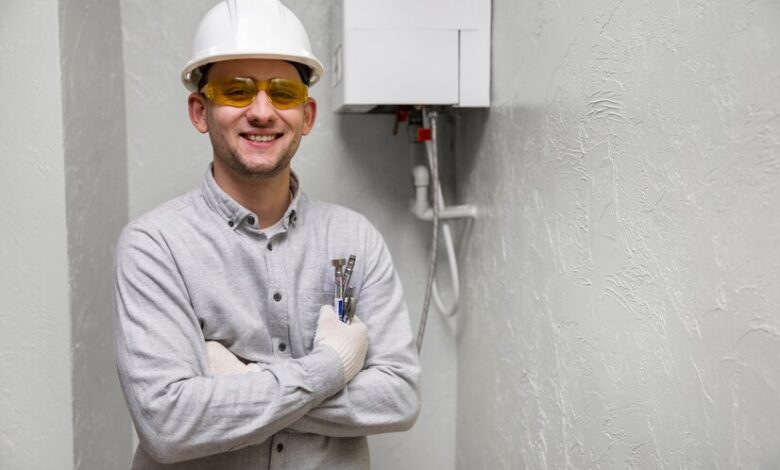Upgrading Your Gas Boiler: When, Why, and How

As the heart of your home’s heating system, a gas boiler plays a crucial role in providing comfort and warmth during the colder months.
Over time, however, even the best boilers lose efficiency or become less effective at delivering the heat you need.
Upgrading your gas boiler can be a significant investment, not only improving your home’s heating efficiency but also reducing your energy bills and environmental impact. This guide will explore the when, why, and how of upgrading your gas boiler.
When to Consider Upgrading Your Gas Boiler
Considering an upgrade to your gas boiler? Here’s when it might be time: as your boiler ages, experiences frequent breakdowns, or shows signs of decreased efficiency.
Age of Your Current Boiler
The lifespan of a gas boiler typically ranges from 10 to 15 years. If your boiler is approaching or has surpassed this age range, it’s wise to consider upgrading. Older boilers not only have a higher risk of malfunctioning but also operate less efficiently.
Frequent Breakdowns and Repairs
If you find yourself frequently calling a technician for repairs, these costs can quickly add up. Upgrading to a new boiler could be more cost-effective in the long run rather than continually spending money on fixing an old one.
Noticeable Decrease in Efficiency
If your heating bills have been creeping up, despite your usage remaining consistent, it could indicate your boiler’s efficiency is declining. Modern boilers tend to have higher energy efficiency ratings compared to older models.
Why Upgrade Your Gas Boiler
Upgrading your gas boiler offers multiple advantages, from heightened energy efficiency and safety to reducing your carbon footprint and boosting your home’s value.
Enhanced Energy Efficiency
Modern boilers are more energy-efficient due to advancements in technology and design. Many new models operate at over 90% efficiency, significantly higher than older models that might operate at 60-70%. This efficiency jump can translate into substantial savings on your energy bills.
Reduced Carbon Footprint
Upgrading to a newer model can also reduce your home’s carbon footprint. Efficient boilers use less fuel to generate the same amount of heat, thereby decreasing greenhouse gas emissions.
Improved Safety and Reliability
New boilers come with improved safety features and are less likely to present issues such as carbon monoxide leaks.
Also, a new boiler is more reliable in terms of operation, ensuring you have heat when you need it most.
Increased Property Value
Upgrading your boiler can also increase your property value. Prospective buyers often look favorably on homes with modern, efficient heating systems, seeing them as better investments.
How to Upgrade Your Gas Boiler
Upgrading your gas boiler involves selecting the right type, size, and energy efficiency to match your home’s needs. Here’s how to make the best choice for efficiency and comfort.
Choosing the Right Boiler
Selecting the ideal boiler for your home is critical to maximizing energy efficiency and heating performance.
Here’s a guide to choosing between combi, system, and conventional boilers based on your specific needs.
a. Type of Boiler
Decide whether a combi, system, or conventional boiler suits your needs:
- Combi boilers are compact and ideal for smaller homes without a need for multiple baths or showers simultaneously.
- System boilers require a cylinder for storing hot water, but no tank, making them suitable for homes with greater hot water needs.
- Conventional boilers need both a cylinder and a tank, best for large homes with multiple bathrooms.
b. Boiler Size
It’s crucial to select the right size boiler for your home to ensure efficiency. A boiler that’s too large or too small for your space can lead to wasted energy or insufficient heat. Consult with a professional to determine the appropriate size.
c. Energy Efficiency
Look for boilers with high energy efficiency ratings. In the UK, for example, boilers are rated according to the SEDBUK (Seasonal Efficiency of Domestic Boilers in the UK) scale. Aim for a boiler with a rating of ‘A.’
Hiring a Qualified Installer
Selecting the right installer is as important as choosing the boiler itself:
- Check Certifications: Ensure that the installer is certified and registered with a competent person scheme. For instance, in the UK, this would be Gas Safe Register.
- Seek Multiple Quotes: Obtain quotes from several installers to ensure you get the best service at a competitive price.
- Read Reviews and Testimonials: Look up reviews and ask for testimonials from previous customers to gauge the installer’s reputation and quality of work.
Understanding the Costs and Savings
Navigating the financial aspects of upgrading your gas boiler is key, from initial investment to long-term savings and available government incentives. Here’s what you need to know to make an informed decision.
Initial Costs
The cost of a new boiler and installation can vary widely depending on the type and size of the boiler and the complexity of the installation. Prices typically range from £1,500 to over £3,000.
Long-Term Savings
Calculate your potential savings on energy bills with a more efficient boiler. Depending on your old boiler’s condition and efficiency, a new boiler can significantly reduce your heating costs, sometimes enough to offset the cost of the new boiler over its lifespan.
Government Grants and Incentives
In some regions, there are grants and incentives available to help offset the cost of upgrading to an energy-efficient boiler. Research local programs that might apply.
Conclusion
Upgrading your gas boiler is a decision that comes with significant upfront costs but offers considerable long-term benefits in terms of savings, safety, and home value.
By understanding when to upgrade, why it makes sense, and how to go about it effectively, homeowners can make informed decisions that enhance their home’s heating system’s efficiency and reliability.



